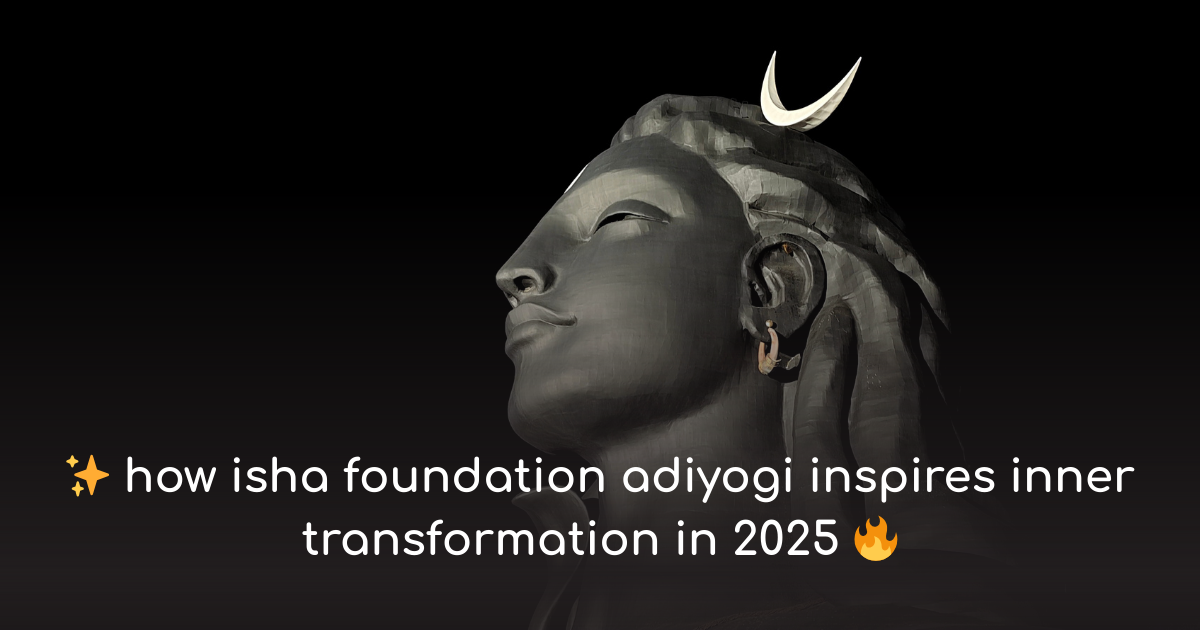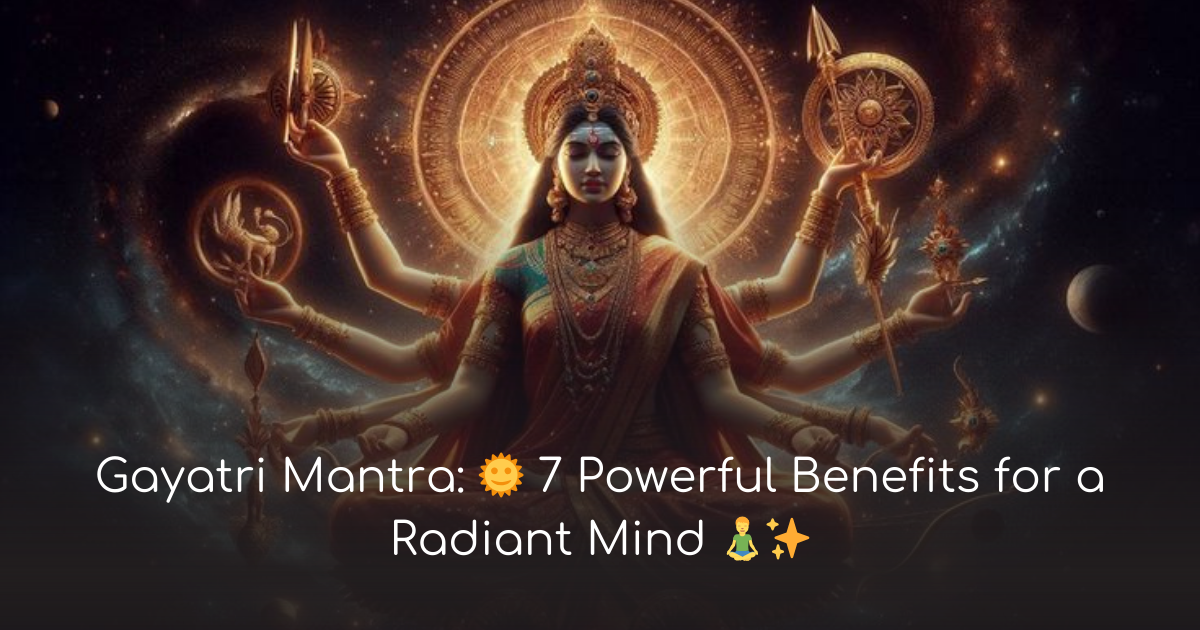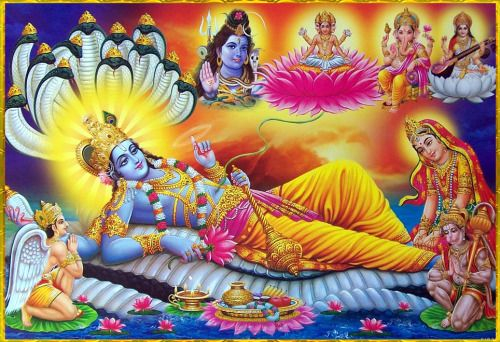karma and intention: 7 powerful truths about your thoughts

Karma and intention shape your destiny more than actions. Discover 7 powerful truths that reveal how your thoughts silently build your karmic future.
🌟 Karma and Intention: 7 Powerful Truths About Your Thoughts
We often think of karma as the result of our actions — what we do, say, or even fail to do. But in the deeper vision of Sanatan Dharma, karma begins even before action. It begins with a thought.
Yes, you heard that right.
Karma and intention are inseparably linked. Your thoughts — silent, invisible, and constant — are shaping your karmic destiny far more than you realize. While physical actions are like the fruits of a tree, intentions are the roots. And if the roots are rotten or impure, no matter how beautiful the leaves look, the tree cannot flourish.
"You are not punished for your thoughts; you are punished by them."
– Ancient Vedic Wisdom
In this blog, let’s explore 7 powerful truths about karma and intention, and discover why your mental vibrations matter more than anything else. Let’s begin with the foundation of it all — thought itself.
🧠 Karma and Intention – How Thoughts Create Karma
🧩 Understanding Subtle Karma Beyond Physical Action
In Sanatan Dharma, karma is divided into three levels:
-
Kayika Karma – Physical actions
-
Vachika Karma – Verbal actions
-
Manasa Karma – Mental actions (thoughts and intentions)
Out of these, mental karma is the subtlest and most powerful — because it is the seed from which all actions sprout. Every choice, every word, every movement begins as a thought. And that thought carries its own karmic charge.
Let’s say:
-
You donate food, but with pride — karma is diluted.
-
You forgive, but still hold resentment — karma lingers.
-
You smile at someone, but inside feel envy — karmic energy remains negative.
💡 True karma is not just about doing the right thing — it’s about thinking it with the right intent.
🌱 Power of Intention – More Important Than the Action Itself
In the material world, we judge actions. But in the spiritual dimension, intention is what the universe sees.
🧩 Intention Behind Actions in Spiritual Traditions
Let’s compare two acts:
-
A king gives gold in charity to gain fame
-
A poor man gives one rupee with pure love
Whose karma is greater?
The poor man’s.
Because karma and intention are inseparable.
The Bhagavad Gita (9.26) beautifully states:
“If one offers Me a leaf, a flower, fruit, or water with love and devotion, I accept it.”
It’s not what you give, but how and why you give it.
📿 Even a mantra chanted without devotion yields less karmic power than one whispered with full sincerity.
This is why karma yoga isn’t just about selfless action — it’s about purity of mind behind the action.
🪞 Thoughts Are Vibrations – Karma Begins in the Mind
Every thought you think emits a vibrational frequency. This energy not only affects your mood, aura, and health — but also attracts karmic outcomes.
🧩 Thought Energy and Its Impact on Aura and Destiny
Modern science calls this neuroplasticity — your thoughts change your brain.
Vedic science calls it manomaya kosha — your thoughts shape your subtle body.
When you think:
-
Angry thoughts ➤ you feel drained, anxious, unstable
-
Grateful thoughts ➤ your energy expands, heart opens
-
Jealous thoughts ➤ your aura contracts, karma gets clouded
-
Peaceful thoughts ➤ your aura glows, karma purifies
"The quality of your thoughts becomes the quality of your karma."
Imagine your thoughts as seeds.
The more you repeat them, the more they root.
And when the conditions are right, they sprout into reality.
So, even before you speak or act — karma is already forming in your energy field.
🔥 Negative Thoughts – The Hidden Karmic Traps We Ignore
Often, we justify our internal emotions:
“It’s just in my mind. I didn’t say it out loud.”
But the universe records energy, not just sound.
🧩 Controlling Thought Patterns Before They Control You
Think about it:
-
Gossip starts as judgment
-
Violence starts as rage
-
Greed starts as craving
-
Lies start as fear
And all of these originate in the thought realm. This is silent karma, and it’s no less binding than actions.
“As you think, so you become.” – Mundaka Upanishad
Negative thinking becomes a habit, and that habit becomes your vibrational identity.
But here’s the blessing:
You can interrupt the pattern.
You can choose a new thought, again and again, until that becomes your default vibration.
👉 In the next section, we’ll explore:
-
📿 How to cultivate Sattvic thinking to cleanse karma
-
📘 Teachings from the Bhagavad Gita on thoughts and karma yoga
-
🌌 How to use daily intention-setting and awareness to guide your karmic journey
-
🙏 A conclusion to help you walk away with confidence and clarity
📿 Sattvic Thinking – The Path to Karma Purification
Your thoughts are not just personal — they are spiritual energy waves. And the type of thoughts you consistently hold determines the quality of your karma.
Sanatan Dharma teaches us about three modes of thinking:
-
Tamasic – dark, lethargic, hateful
-
Rajasic – ego-driven, restless, ambitious
-
Sattvic – pure, compassionate, harmonious
To purify your karma, you must cultivate sattvic thoughts.
🧩 Cultivating High-Vibration Intentions Daily
Here’s how to elevate your inner vibrations:
-
Start your day with positive affirmations like “I choose peace,” “I am guided by dharma.”
-
Read or listen to sacred mantras (Om, Gayatri, Mahamrityunjaya)
-
Practice silence (Mauna) for a few minutes daily
-
Surround yourself with sattvic environments — natural beauty, calm music, devotional content
-
Avoid gossip, arguments, and media that disturbs your inner energy
💡 Karma is energy, and energy is contagious. Protect your vibration — and you protect your karma.
📘 Karma Yoga and Thoughts – What Gita Teaches
One of the most beautiful aspects of the Bhagavad Gita is its guidance on karma yoga — acting with selfless intention and mental detachment.
Krishna repeatedly emphasizes:
“You have a right to perform your prescribed duty, but you are not entitled to the fruits of your actions.” (Gita 2.47)
This means:
-
Act with awareness
-
Offer the result to the Divine
-
Don’t cling to outcomes
-
And keep your mind pure throughout the process
🧩 Bhagavad Gita on Selfless Thought and Inner Detachment
Krishna’s advice to Arjuna wasn’t just about fighting a war. It was about mastering inner karma:
-
Let your intention be duty, not ego
-
Let your thoughts be clear, not reactive
-
Let your actions be aligned with dharma, not desire
This is how spiritual warriors live — not through aggression, but through clarity of thought and karma.
🌌 Conscious Living – Becoming the Master of Your Karma
Your thoughts are not random. They are reflections of your soul’s alignment — or lack of it. The more conscious you become of them, the more mastery you gain over your karma.
🧩 Awareness, Reflection, and Transforming Intentions
Here are 3 simple yet powerful practices you can adopt immediately:
-
Daily Reflection (Svadhyaya)
-
At night, ask:
“What thoughts dominated me today?”
“Were they loving, fearful, reactive, or wise?”
-
-
Before You Act, Pause
-
Ask: “Why am I doing this?”
-
If the intention is ego, pause. If it’s compassion, proceed.
-
-
Intention Journaling
-
Write down your intention for the day in the morning
-
Revisit it at night — reflect on alignment vs. reaction
-
💡 The more you live with conscious intent, the cleaner your karmic field becomes.
“Your outer life is your karma. Your inner life is your intention. Both create your destiny.”
🙏 Conclusion – You’re Thinking Your Future Into Existence
Your mind is the most sacred temple. And every thought you allow in it is a devotion or a distraction.
Karma is not just about what you do — it’s about what you are silently becoming through your intentions, assumptions, expectations, and imagination.
Whether you’re planting seeds of:
-
Judgment or forgiveness
-
Doubt or trust
-
Ego or humility
…every one of them will bear karmic fruit.
But here’s the power you always have:
You can choose again. You can think better. You can become aware.
From this very moment, you can begin shaping karma from its purest source — thought.
Let your thoughts be:
-
Anchored in dharma
-
Nourished by devotion
-
Guided by compassion
-
Elevated by awareness
🌼 Because your thoughts today are the destiny of tomorrow.
🌿 Ready to become the conscious creator of your karmic reality?
🕯️ Begin by purifying your intentions — it’s the most spiritual act of all.
📖 Dive deeper into the wisdom of karma, thought, and inner growth at SanatanYug.com
❓ FAQs – Karma and Intention
1. Can thoughts really create karma even if I don’t act on them?
Yes. Manasa karma (mental action) is a valid karmic form in Hindu philosophy. Repeated thoughts create energy fields that attract results.
2. How do I stop negative thoughts from creating bad karma?
Start with awareness. Replace negative thoughts with gratitude, mantra, and introspection. Even noticing the negativity begins healing.
3. Is intention more important than the action itself?
Yes. If the intention is impure, the action loses spiritual value. Pure intention with small action is greater than a grand action with ego.
4. What mantras can help cleanse karmic thoughts?
-
Om Namah Shivaya
-
Gayatri Mantra
-
Om Mani Padme Hum
-
Mahamrityunjaya Mantra
Chanting them cleanses your mental layer (manomaya kosha).
5. Can intention change destiny?
Absolutely. New, conscious intentions create Agami karma, which can neutralize or override Prarabdha karma over time.








